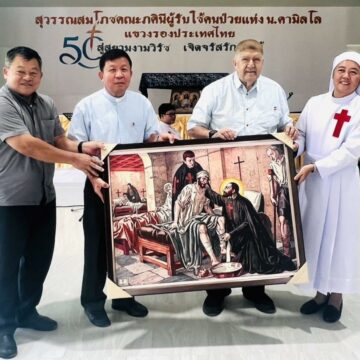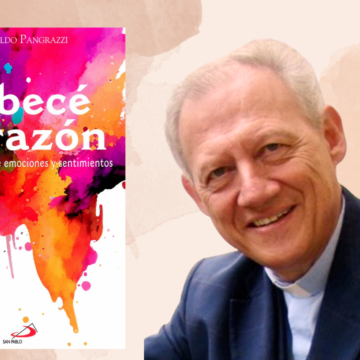 In the context of a network of palliative care, the operational method by which to respond in a unitary way to the needs of sick people and their relatives is teamwork. In various documents recognised organisations belonging to this sector, such as the English National Council for Hospice and Specialist Palliative Care Services, have emphasised the importance of cooperation between professionals, the sharing of decisions, and support between, and for, the members of the team.
In the context of a network of palliative care, the operational method by which to respond in a unitary way to the needs of sick people and their relatives is teamwork. In various documents recognised organisations belonging to this sector, such as the English National Council for Hospice and Specialist Palliative Care Services, have emphasised the importance of cooperation between professionals, the sharing of decisions, and support between, and for, the members of the team.
A team that works in palliative care is multidisciplinary because of the joint presence of various professions and it is interdisciplinary because of the various methods of work. It is different from the prevalent model of most health-care contexts (the multidisciplinary group) because of the prevalence of group identity over the identity of individuals, because of the sharing of those objectives that constitute the aim of shared work, and because of a shared leadership and the importance given to the process of interaction.
The patient, as well as their network of family relatives and friends, are also a part of the team because they are able to direct its plan of care and assistance and because they take part in the evolution of the situation and the decisions that derive from it. In this sense, the patient is the person who can best define priorities as regards their own priorities and difficulties: when they are listened to, and their needs are placed at the centre of things, they are best teacher for the team.
Whereas in other health-care contexts roles are clear and hierarchical in nature and do not allow delegations, above all in emergency departments or ones involving high levels of specialisation, in the field of palliative care these same roles lose their boundaries and tend to belong to a dialectic that is focused on the greater good of the patient. In this sense, in the field of palliative care the principal task is more variable and open to interpretations. What does improving the quality of life of each individual patient mean? What is needed for that objective to be achieved? Who is most suited to that task? Whom would the patient prefer to be helped by? What is the role of each individual member of the group in achieving that objective? These are some of the questions that are raised in the team and direct how it operates!
All of this is not painless. It is exposed to the risk of conflict and in the long term to burn out as well. To obviate this, on the one hand the individual should be professionally capable, endowed with scientific knowledge, and able to educate other people; on the other hand, he or she must continue to be flexible and be ready to allow others to invade his or her own field without feeling threatened. In definitive terms, a conflict of roles can be negotiated and overcome if the patient is kept at the centre of things and if it is his or her wellbeing that is aimed at.
To achieve the goal of cooperation in practical terms, a real process of cultural change and of change in perceptions is needed. Here some researchers have observed that real cooperation is not the result of organisation. It must, instead, come from the minds of those who are called to cooperate. Further studies have recently demonstrated the strong potential for motivation of two factors: a perception of one’s own effectiveness (strongly supported by recognition by the work team) and a commitment to working in a team. Belief in one’s own effectiveness is of fundamental importance in facing up to stress, thereby combatting burn out which is defined by some people as a ‘crisis of personal effectiveness’. A commitment to working in a team is the psychological attachment that its members feel towards it, with special attention being paid to its members rather than to its organisation as a superstructure.
Perception of one’s own effectiveness and group spirit are nurtured by certain approaches and dispositions that facilitate their achievement. Various authors have identified them in inter-dependence, trust and mutual respect, in open communication and the sharing of responsibilities and power. They do not act in a separate way but often are the consequence of each other. Indeed, there cannot be trust unless there is a context of respect which in its turn is connected to an understanding and a knowledge of the professional skills and expertise of the other members of the team. In other words, cooperation is nothing else but ‘recognition of, and respect for, the specific skills and expertise of each professional’ on the basis of work that is performed ‘together and not in a hierarchical way as regards decisions affecting patients’, in an atmosphere of ‘trust and reciprocal communication’.
Activity in a hospice benefits in various forms and through different instruments from the practice of cooperation. Amongst these, two privileged points are when rounds come to an end and begin and the team meetings. The first takes place at regular intervals at the end of each round whereas the second takes place on a weekly basis. Different in their concerns and contents, both contribute to focusing the attention of the group on the shared objective and the centrality of the patient, and to strengthening a feeling of trust and respect that brings the various workers together and makes them capable of an inter-disciplinary approach.














Camillians on Facebook
Camillians on Twitter
Camillians on Instagram